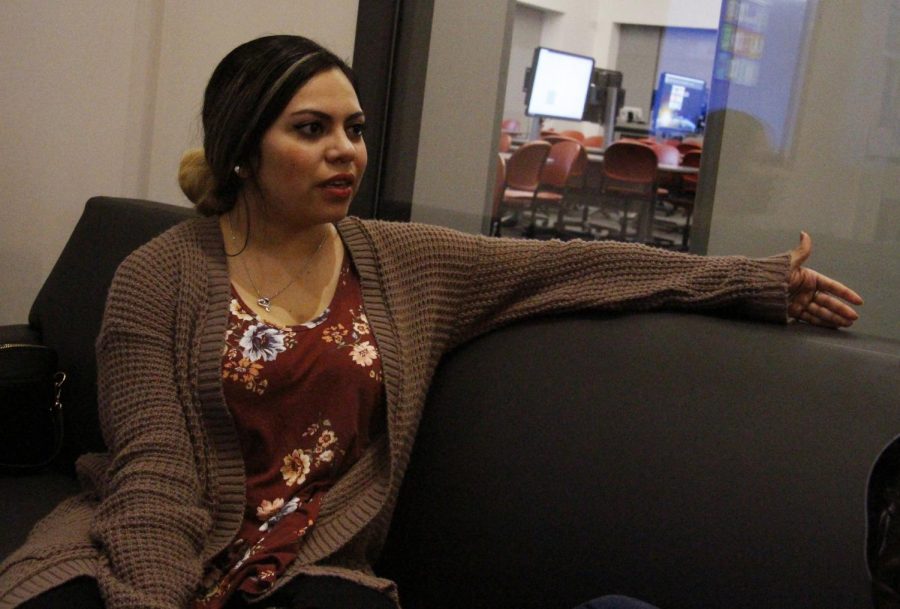It’s okay to ask for help with mental health
Societal stigmas against mental health awareness can keep someone from receiving the help they need
Samantha Dohrman | The Daily Evergreen
Senior anthropology major Maria Castro shares her thoughts on the benefits of talking things out with a trusted person.
January 25, 2018
They called me a crisis when I walked in.
My palms were sweaty, but I needed to talk. I was fearing my own mind—it was betraying me, overriding my instincts of survival. I was scared.
This is not a column for pity — in fact, it is far from it. This is a column to tell you that there is something wrong in our society. That until that moment in WSU Counseling and Psychological Services, I thought I could handle my anxiety and depression. Until I was stuck in the parking lot of Wal-Mart, fearing myself, I thought it was just weakness.
What I realized was just the opposite: I was weaker without the help, and I was far from being alone.
According to the National Data on Campus Suicide and Depression, one in 12 college students make a suicide plan. Unfortunately, as recent events have shown, this often goes unrecognized until it is too late.
Many people refuse to discuss this topic, especially involving themselves. So let me do it for you.
Almost no one is immune to this mindset of “weakness,” an American standard that is proving to be detrimental to our society. I have been told many times in the past to “think happier thoughts,” or “get more exercise.” While this may help the minor cases of mental illness, or momentary ones such as Seasonal Affective Disorder, what about the more major cases like mine? Or Hilinski’s?
We need to change our attitude toward this subject. It isn’t weakness, it’s self-care, just as much as clean eating or working out. We don’t take mental illnesses seriously. We need to.
Maria Castro, a senior anthropology major, was severely affected by her anxiety and depression. Last semester, she was unaware of what was affecting her and had a hard time admitting it.
Castro was applying for grad school and working as a Resident Assistant on top of her school work when she realized she needed to reach out to someone. When she finally managed to receive help, the results were positive, and even, according to Castro, relieving.
“Now I can move forward versus thinking that it’s just a phase,” Castro said. “Knowing for sure what it was was a huge relief in and of itself. It made it easier for me.”
Castro opened up to her friends and found support and comfort towards her condition. Her family had a harder time with it, and she still has difficulty admitting it to instructors without feeling like it is an excuse. But this, she encourages, is still progress.
“I do honestly wish I had been more proactive about getting diagnosed versus maybe hoping that it was something I could deal with,” Castro said. “It’s okay to ask for help. It’s okay to talk to people. Sometimes you might have everything planned out, but stuff happens, life happens.”
The amount of people suffering from mental illness is high, but we can shrink them. It is not weakness to seek help—it is destructive, and even fatal, to avoid doing so.
Editor’s note: This column has been updated from its original version.









